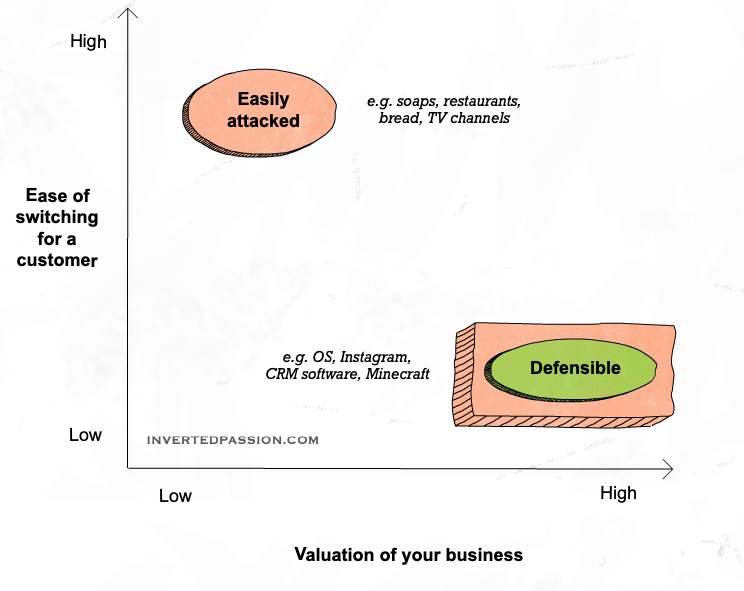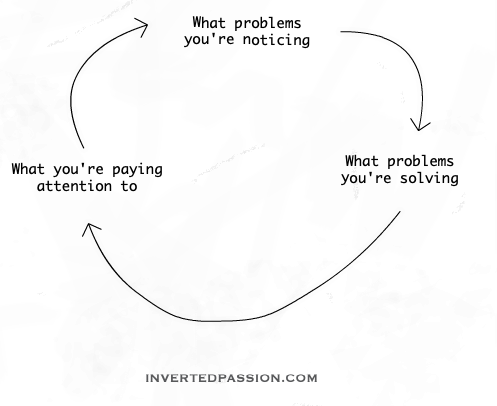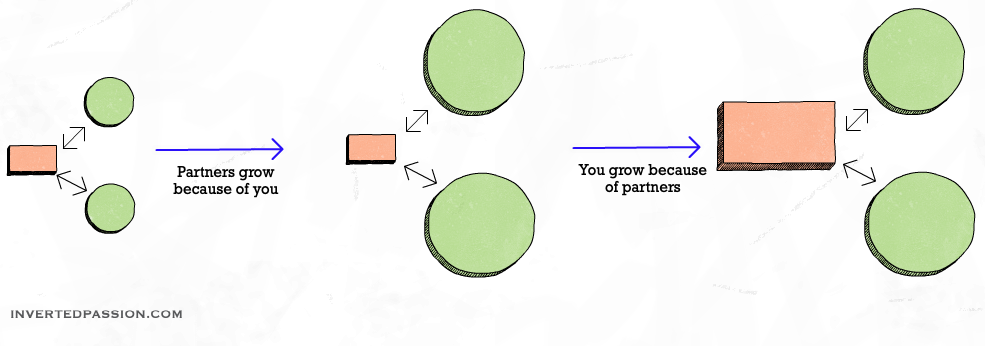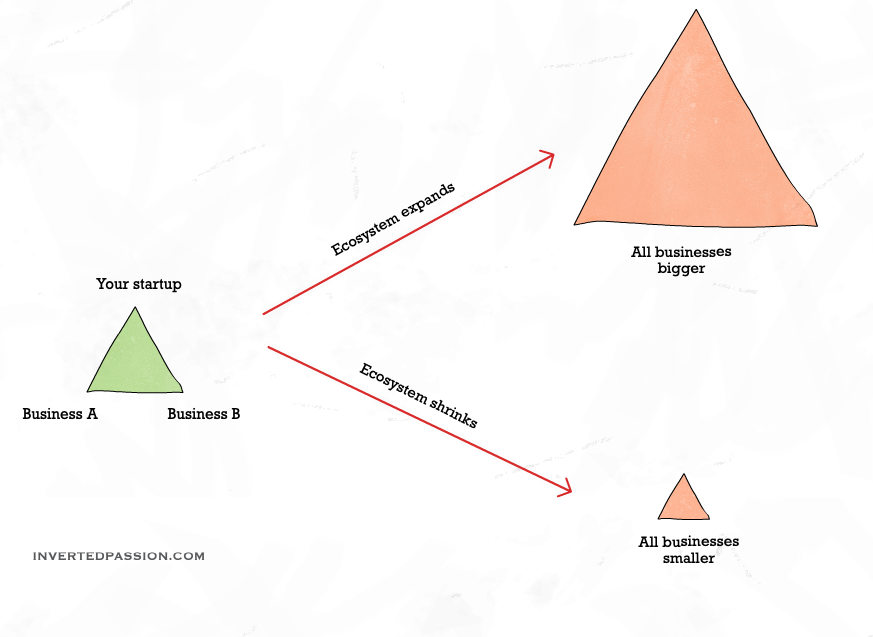Proven physical theories are called laws because they dictate how our world operates. If there were such a “law” of capitalism, it would probably be the fact that profits attract competitors who try to eliminate it by offering customers either a lower price or a higher quality. This law thus allows for only two types of businesses to exist: cost-focused business or quality-focused business. Think of a McDonald’s v/s your neighborhood gourmet burger restaurant. Any business that tries to be both doesn’t work out in the long run. ...
All posts by Paras Chopra
Switching costs determine the valuation of your business
Switching costs determine how valuable your business is because investors value a business equal to its expected future profits. If your customers are able to switch easily to a competitor, potential investors see that as a risk, and hence will not value the business highly as potential future earnings of a business can easily be taken away by a competitor.

If building a business is hard, building a defensible business is harder and that’s why they’re rare. Warren Buffet’s top criteria for evaluating a business is the presence of moats. In old times, castles were protected by trenches filled with water which were known as moats. Such moats protected against an enemy attack as they were not easy to cross. In business, moats are whatever deters a potential competitor from taking away your customers. ... Read the entire post →
Commoditize your value chain before it commoditizes you
End customers typically get value through a series of businesses adding value on top of each other. For example, imagine the value chain required to bring a laptop to the end customer. The production begins with suppliers of metals and raw materials which are used by computer part manufacturers to build components like CPU, screens, and disk drives. These components are then assembled to build a laptop. The laptop needs software that’s typically written by some other supplier like Microsoft. And, finally, the fully functional, ready-to-use laptop is shipped by a logistics company to a warehouse. Customers transact with an online or offline seller of laptops which is typically yet another company (Amazon or BestBuy). ... Read the entire post →
Solve the most important problem that you can personally impact
Picking problems to solve is a function of attention. Wherever and whatever you’re paying attention to is going to reveal problems in that domain to you. Solving such revealed problems is going to absorb you and will reveal even more problems worth solving in that domain.
So this creates kind of a feedback loop.

Because every domain of life has such richness, it’s easy to get lost in this feedback loop and spend an entire life solving problem after problem in that domain. In fact, this is what (traditionally) is meant by a career. There’s nothing wrong with going deeper into a niche if one is mindful and conscious of it. However, in my experience, few people consciously choose what problems to solve because very few consciously choose what to pay attention to. ... Read the entire post →
How much can science tell us about reality?
1/ Reading and re-reading The Brief History of Time when I was young, I grew up into adolescence with an unshakeable faith in science to reveal truths about reality. At school, we were taught scientific laws as if they’re the gospel of reality, never to be changed and never to be questioned. Once you understood magnetism, for example, you could seal that part of reality forever as being understood and then move onto the next thing.
2/ Except that’s not how things happen. Our scientific understanding gets revised all the time. Once the western civilization believed that Earth was created 4000 years ago. Today, most know that it can’t be true. ... Read the entire post →
What you build your business on doesn’t limit how big it can grow
Can an app built on top of Facebook become bigger than Facebook itself?
It’s easy to believe that you will get limited by how big is the businesses on which your business is built. But that’s not true. An app built on top of Facebook can become bigger than Facebook because the customers and desires that Facebook serves are very different than customers and desires that the business that’s built on Facebook is trying to serve. Facebook, in this case, is simply an enabling platform while the real value to the customer is being created by the app. ... Read the entire post →
Find partners who can grow their business by building on top of your business
No business delivers value to the end customer all by itself. In reality, a business does very few things within its boundaries. Everything else must come from other businesses: from renting servers on AWS to leasing offices, and from advertising on Google to buying laptops from Dell. Most of the time, such dependencies emerge naturally and evolve without any conscious effort. However, sometimes some business dependencies can (and should) be deepened explicitly through partnerships.

If nurtured well, business partnerships create positive feedback loops that help rapidly grow a business. Consider the case of Apple, a famously vertically integrated company that makes its own OS, processor, and many other phone components that other companies typically purchase from vendors. However, their iPhone App Store is proof that even Apple realizes that it can’t thrive without partners. Apple supports many thousands of 3rd party software developers who create millions of amazing app for the iPhone. These apps wouldn’t have been possible without the underlying technology supplied by the iPhone. Similarly, the iPhone wouldn’t have been as successful as it, if it didn’t provide the multitude of functionality that its users have now come to expect because of all the 3rd party apps available on the platform. So, the iPhone helped the developer community build a business on top of it, and with that, iPhone benefitted massively. ... Read the entire post →
My moral code
Lately, I’ve been feeling a lack of a well-deliberated, explicit moral code. The world is changing really fast – we have Elon Musk trying to set up a human colony on Mars while Earth’s bio-ecosystem is degrading by the day. So, should I support the investment of resources into making Mars habitable while Earth is gradually becoming unhabitable?
This, obviously, isn’t the only question. Every day, I feel like I need to decide which way to swing on controversial topics. People have strong opinions about things like genetically engineered babies, bitcoin, nuclear power and other new technologies. I know enough about cognitive biases to know that I shouldn’t trust my gut fully on these questions. My gut simply doesn’t know enough to have a good opinion on complex societal issues. Instead of relying on my gut, I need to rely on deliberate thinking to make moral choices. ... Read the entire post →
Crypto is the future of our society
Balaji is a deep thinker on crypto and its implications. Formerly the CTO of Coinbase and General Partner at Andreessen Horowitz, he's seen how technologies evolve over time, which ones change the world and which ones fizzle out as a fad.
He believes crypto technologies such as bitcoin represent the former. To him, crypto will emerge as something that's as important as the Internet and influence our society for decades to come.
All startups belong to an ecosystem that makes or breaks them
All startups live in an ecosystem where different businesses directly or indirectly support one another. For example, in the case of the automotive industry, the ecosystem consists of car manufacturers, car parts manufacturers, petrol stations, car service centers, car insurance companies, and government regulators.
All of them mutually support the entire ecosystem, which means the growth or decline of one business will directly impact all other businesses.

Ecosystems are not always as easy to spot as the automotive industry. Often they are hidden and only apparent in retrospect. ... Read the entire post →